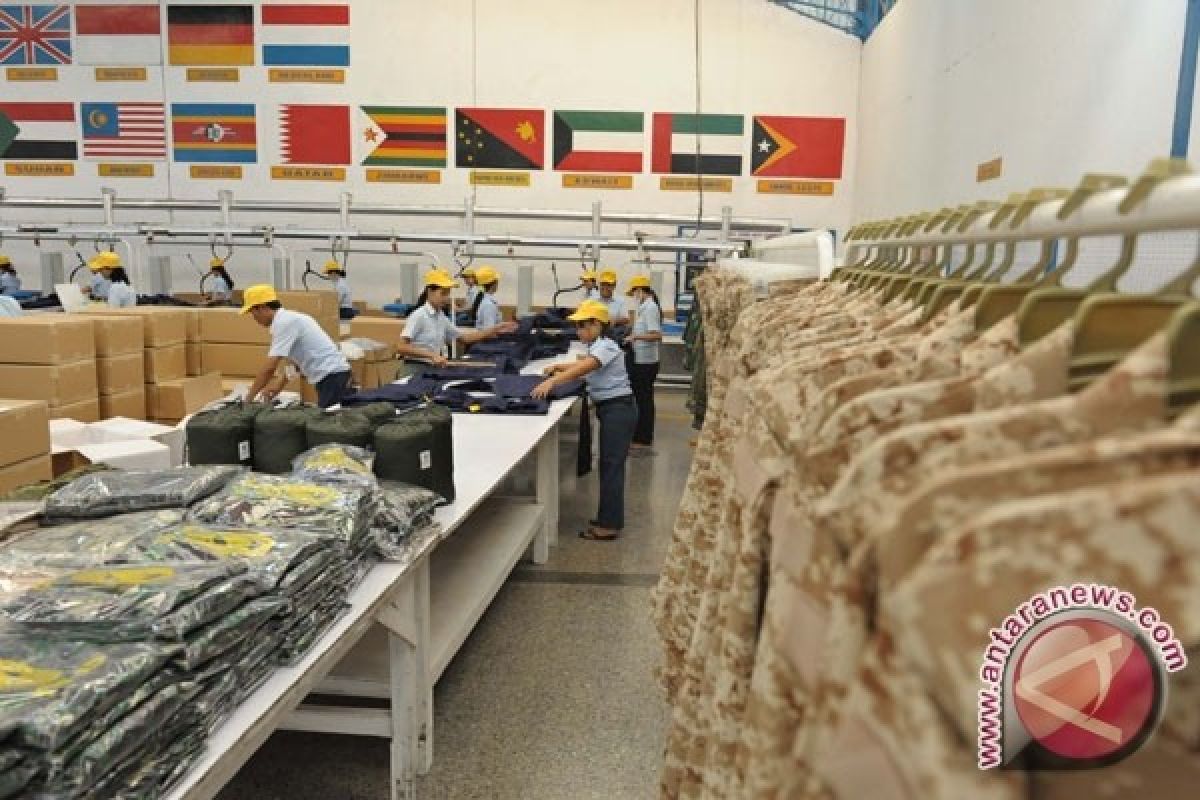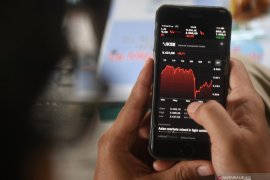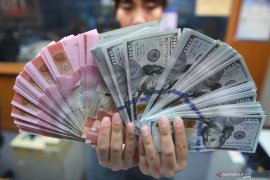They cannot say that Indonesia is cheating. We have never forced them to buy Indonesian products."Jakarta (ANTARA News) - The Indonesian government has yet to make a move but is preparing anticipatory steps while awaiting the results of the US investigation to uncover causes of its trade deficit with 16 countries, including Indonesia.
US President Donald Trump has issued an executive order calling for an investigation into countries that had contributed to the US "trade imbalance."
Earlier, the US Department of Homeland Security had issued a list of 16 countries that were viewed as having a trade imbalance with the US.
The Indonesian government is still awaiting the results of the investigation into the countries appearing on the list of US deficit contributors.
"Point one of the executive order calls for the analysis and study of the causes of the deficit. We do not know yet how they would conduct the analysis," Chief Economic Minister Darmin Nasution stated at a coordination meeting on the US foreign trade policy in Jakarta on Thursday (April 6).
Hence, the Indonesian government is still awaiting the results of the analysis. It has yet to take steps but will continue to intensively communicate with the US side and prepare various anticipatory measures.
"We are studying whatever means the US will use in questioning Indonesia. Of course, we are preparing for that," he emphasized.
The US trade deficit with Indonesia had reached $8.84 billion in 2016, according to the Trade Ministrys data. The commodities shipped to the US were mostly footwear, textiles, fishery products, and natural resources, while the US had exported aircraft, soybean, and machinery.
However, Nasution believes that the US is not necessarily suffering losses with Indonesia since it can also enjoy a surplus with the country in the balance of services and other areas.
"Our trade relations with the US are not only in terms of goods but also services, investment, profit transfer, and other areas. If we take all of them into account, it would not be the same as the trade of goods," the coordinating minister for economic affairs remarked.
Internal Trade Director General of the Trade Ministry Oke Nurwan said the government is still awaiting the results of the US investigation before Indonesia takes anticipatory steps that it is currently preparing in the trade sector.
"It must be ready and should analyze what further steps have to be taken. We will first see the result of the investigation. We are yet unaware of its investigation and the commodities that have been identified. What the US is viewing is the goods aspect, while in fact, in terms of services, we are at a deficit," Nurwan stated.
Indonesia will continue to monitor the US trade policy while evaluating the commodities exported to the country, Trade Minister Enggartiasto Lukita noted.
"We will monitor it and wait for their subsequent moves. We are evaluating commodities that were exported to the US, whether they would potentially be questioned," Lukita added.
According to the Indonesian central bank, Bank Indonesia (BI), Indonesia did not violate US trade and customs laws, as mentioned in President Donald Trumps latest executive order outlining 16 countries having followed unfair trade practices.
Responding to Trumps policy, BI Senior Deputy Governor Mirza Adityaswara explained three criteria for a country that was deemed detrimental to the US trade, including owning more than $20 billion in trade surplus.
"Indonesia must not be on the list, as the country only has a trade surplus of $13 billion (according to the US claim)," he stated in Jakarta on Wednesday (April 5).
The US should also anticipate countries having a surplus in their total current account, in terms of the exports and imports of goods and services.
Indonesia, again, should not be included on the list of those countries, as its current account deficit is 1.8-2 percent of the gross domestic product.
Lastly, countries that were not potentially beneficial for trading with the US were those constantly interfering by artificially altering their currency exchange rate in a year, with the aim of achieving an unfair trade advantage with the US, so that the value of their exports to the country would become cheaper.
Adityaswara asserted that Indonesia had never intentionally weakened its rupiah exchange rate to boost its exports to the US.
"On the other hand, BI, if necessary, makes a foray into the market to control volatility. We attempt to prevent the rupiah from reaching its weakest level," he emphasized.
Vice President Jusuf Kalla has called on the US government to exercise introspection, following its accusation of "trade cheater" against Indonesia which has recorded trade surplus with the US.
"Of the 16 countries, we are in the 15th position, and actually it is fair. In addition to oil and gas, our export to the US includes garment, footwear, and machinery, while import includes aircraft, machinery, electronic wares, and others," he added.
Therefore, Kalla noted that the bilateral trade between US and Indonesia had run normally as they had recorded trade deficit over other partner countries as well.
"They cannot say that Indonesia is cheating. We have never forced them to buy Indonesian products. They buy them because our products are good and cheaper," Kalla remarked.
Trump has issued an executive order to investigate the trade imbalance between the US and 16 countries. The investigation order covers data on the US trade that recorded a deficit of US$500 billion, of which some $347 billion were contributed by its trade with China.
The 16 countries that contributed to the trade deficit were China, Japan, Germany, Mexico, Ireland, Vietnam, Italy, South Korea, Malaysia, India, Thailand, France, Switzerland, Taiwan, Indonesia and Canada.
In his executive order, Trump had called for the collection of anti-dumping duties that must be paid to the US. According to the US Accountability Office, more than $2.3 billion in uncollected anti-dumping and countervailing duties were owed to the country since 2001.
The investigation will focus on unfair subsidies, currency rate and its effects, and the absence of mutual benefits in some trade practices, among others.
(T.A014/INE/KR-BSR)
Reporter: Andi Abdussalam
Editor: Priyambodo RH
Copyright © ANTARA 2017












